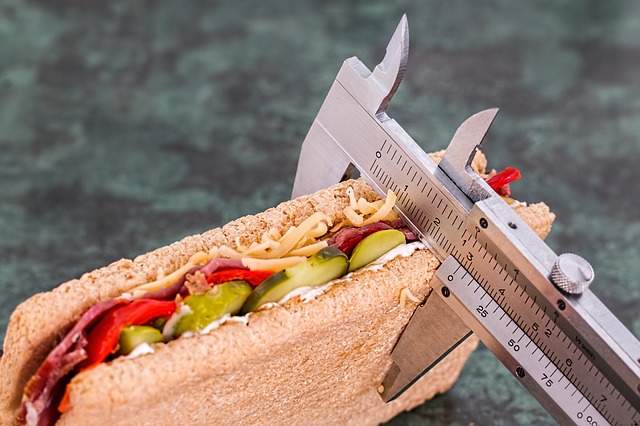This is a common “Happiness Formula”, and according to this formula, you can find happiness by:
Having Lower Expectations
Having Expectations that are in close proximity to Reality
Improving your Reality!! (Our Favourite!)
The Veterinary Profession is absolutely AMAZING, and has so many different avenues and aspects that if one looks, I truly believe anyone can find their niche and love this career. That being said, there are many vets that are unhappy with their career, and part of that comes from having expectations that are not met in their career reality.
In the veterinary profession, we often have expectations of ourselves, the profession, our employers and our clients, that are far from reality. This leads to dissatisfaction in our jobs, increased burn out, lack of happiness in our work lives, and ultimately to the loss of veterinarians from the profession, either to other career paths, and unfortunately all too commonly, suicide.
This 4 part blog series will look at Expectations vs. Reality in the veterinary profession. It is my hope that by addressing and highlighting some main issues we can close the expectation-reality gap. KICK ASS VETS will also provide recommendations on how to improve reality, to help increase Happiness!
Veterinarian Vs. Self:
In this career we can pick many different paths. In school you are taught and geared towards clinical practice, however this isn’t for all of us. It is important to evaluate YOURSELF, and determine which path is best for you.
WHAT-WHY-WHAT Sandwich:
In determining which path is best, I recommend the ‘WHAT-WHY-WHAT Sandwich’. This is the process of going through any options that you want to pursue, and OPENLY and HONESTLY evaluating yourself. What do you want? Why do you want it? What are you willing to do to get it?
By taking good 'measure' of your WHAT-WHY-WHAT sandwich you can determine if a career path will lead happiness.
WHAT do you want?
Determining WHAT you want is multifactorial. Step 1 is to pick a life route that you think you want, and Step 2 is determining WHAT that life route actually means, down to the nitty gritty details. As a vet, you will need to determine WHAT you want out of possible career options including specializing, internships, practice ownership, research, industry, government, general practice, emergency, etc.
Example:
Let’s use specializing as an example. Say you think you want to specialize in Neurology. Great! Now, before you spend the next 4-6 years of your life making that happen, find out WHAT the job actually involves.
Does that mean you will be on-call the rest of your life to cut spines at 2am?
Does it make the income you think it will?
Do you want to limit yourself to working in clinics (and therefore cities that have clinics) that can support a specialist and an MRI?
Does the job stimulate you?
or after your 20,000th seizure patient will you be bored?
What hours will you work?
What is the day-to-day job like?
Do you spend all day on the phone or talking to clients?
or do you spend all day in surgery?
Spend time with a neurologist, observe and ask questions, determine WHAT the job actually involves.
WHY do you want it?
Figuring out WHY you want something often helps you determine how important that option is to you, and can help guide you in your next WHAT step. It is important to think critically about WHY you want something. If your WHY is weak, it makes the follow through to either achieve that goal, or enjoyment of the final product, weak as well.
Example:
Continuing with our specializing example…
WHY do you want to be a neurologist?
Does the work stimulate you and you want to push the limits of the career?
Do you want to do research on a Neurological disease/condition and progress the profession?
Do you want to make more money?
Do you want to work in an advanced hospital setting?
Do you want to not ‘just be a vet’? Or do you just want to sound cool at parties and you do it for the prestige?
Spend time with a neurologist, observe and ask questions, determine if your WHYs are addressed.
After assessing your WHY, compare this to your first WHAT. Does the WHAT actually exist with the WHY? If your WHY isn’t addressed with the WHAT you have picked, will you be happy?
WHAT are you willing to do?
The last part of this WHAT-WHY-WHAT sandwich is to assess critically WHAT you are willing to do to accomplish your goal. Lots of people dream of being rock-stars, or having that chiselled body, but not many people are willing to practice guitar 5 hours a day, or eat only lettuce for the next 3 months. Determining WHAT you are willing (or able financially, mentally, physically, etc.) to do to achieve your goal is important.
Example:
Continuing with our specializing example...
To specialize you will often have to do 1-2 internships,
followed by tests and studying,
often research projects to be a competitive applicant,
then a residency,
more tests, more research, more study, to then become a specialist.
After you are a specialist, you will need to continue to study, do research, and projects, to stay up to date in the field.
Also, it is very possible you may have to move interstate or overseas,
possibly write your NAVLE or other international tests,
and take large financial hits in order to achieve your goals, especially if you are looking at a competitive field.
Will you follow through? Or get bored half-way? Are you willing to put life on hold? Only you can know what is 'worth it'.
It is always important to make informed decisions!
It is important to be very aware of WHAT you have to do to achieve your goals, and determine if it is worth it to you.
IMPORTANT NOTE:
Many veterinarians, including specialists and practice owners, go down paths in this career and end up unhappy and regretting their career choices. It is important to do your research to determine what is involved in the possible career choices you might pursue. Matching the actual reality vs. the perceived reality of these choices, and determining if you are willing and able to achieve your choices, is an important exercise for everyone.
Now, don’t get the wrong idea, having goals, pursuing continued schooling or other endeavours like practice ownership, etc, is all amazing! By looking at the WHAT-WHY-WHAT sandwich, the goal isn’t to deter people from pursuing their ‘dreams’, but to encourage a planned and thoughtful approach, so that you don’t get half-way down a career path and realize that you don’t like it.
No matter what your “WHAT” is, you should pursue this process. Even if you ‘just’ want to practice as a general practitioner, you should perform this exercise, because maybe you will realize that you aren’t really interested in a GP career, and a specialty is a better route for the life-style and work you actually want!
IMPORTANT NOTE:
Another great aspect of the veterinary career is that you can change your path at any time. So even if you have started a path you don't love, or are in a situation/job you don't love, you can change that path. The WHAT-WHY-WHAT sandwich can be used at any time, and can be used to determine if your current job/path is meeting your career needs!
Written by Dr. Ann Herbst BSc, DVM
Published July 10th, 2019
Advocate for yourself, you are the only one that will!
Most Recent Blogs
KICK ASS Boundaries for Locums
Locuming can leave you just as stressed and exhausted as full-time work, if you don't set the right boundaries!
Imposter Syndrome
Chances are you will experience Imposter Syndrome in your career, so tackle it head on!
KICK ASS Confidence
Confidence is knowing that you cannot know everything, and new/recent graduates need to know this!





